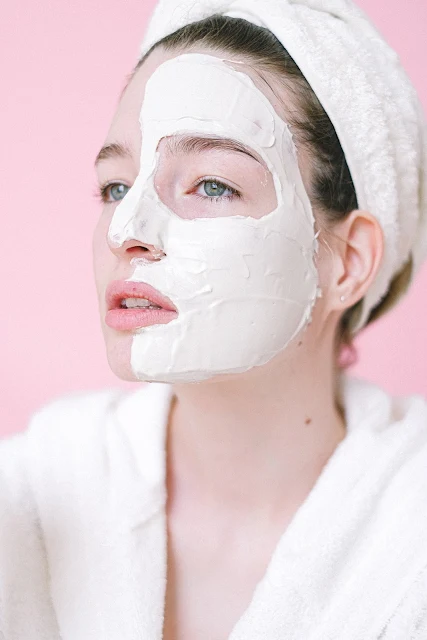Physical exfoliation involves using a scrub or brush to manually remove dead skin cells. This can be done using a body or facial scrub, a loofah, or a dry brush. Physical exfoliation can help improve circulation, reduce the appearance of fine lines and wrinkles, and improve the texture and tone of the skin.
Chemical exfoliation involves using a chemical agent, such as alpha-hydroxy acids (AHAs), beta-hydroxy acids (BHAs), or enzymes, to dissolve dead skin cells. Chemical exfoliation can be done through products like toners, serums, and masks. It can help reduce the appearance of hyperpigmentation, fine lines, and acne scars, and can also improve skin texture and tone.
Exfoliation should be done regularly but not too frequently, as over-exfoliating can lead to irritation, dryness, and damage to the skin's protective barrier. It's important to choose the right type of exfoliation method and product for your skin type and to follow the instructions carefully to avoid any adverse reactions.

Exfoliation is generally safe and beneficial for most people when done correctly, but over-exfoliation or using harsh products can cause skin irritation, dryness, and inflammation. Here are some common causes of skin irritation due to exfoliation, as well as suggestions for treatment and prevention:
- Over-exfoliation: Exfoliating too frequently or with harsh products can strip the skin of its natural oils, leading to dryness, redness, and irritation. To prevent over-exfoliation, limit exfoliation to 1-2 times per week and choose gentle, non-abrasive exfoliants.

- Using rough exfoliants: Scrubs with large, gritty particles can be too abrasive for some skin types and cause micro-tears in the skin. Use gentle exfoliants with small, round beads or chemical exfoliants like AHAs or BHAs.
- Using exfoliants on sensitive skin: Those with sensitive skin may be more prone to irritation from exfoliants. Look for gentle, fragrance-free products that are formulated for sensitive skin.
Using expired or contaminated products: Old or contaminated products can cause irritation or infection. Check expiration dates and keep products in a cool, dry place away from direct sunlight.
If you experience skin irritation or inflammation after exfoliating, here are some treatment options:
- Stop exfoliating: Take a break from exfoliation until the skin has had time to heal.
- Soothe the skin: Apply a gentle, non-irritating moisturizer or aloe vera gel to soothe the skin.
- Avoid harsh products: Avoid using harsh or irritating products on the affected area.
- Seek medical advice: If the irritation is severe or persists, seek medical advice from a dermatologist.
Paula's Choice Skin Perfecting 2%
- BHA Liquid Exfoliant: A gentle exfoliating toner with salicylic acid to unclog pores and smooth skin. The Ordinary Lactic Acid 10% + HA: A gentle chemical exfoliant with lactic acid to improve skin texture and reduce the appearance of fine lines.
- Neutrogena Hydro Boost Exfoliating Cleanser: A hydrating, non-abrasive exfoliating cleanser that uses gentle microbeads to buff away dead skin cells.
Remember to patch-test any new products before using them on your entire face, and to follow the instructions carefully to avoid over-exfoliation or skin irritation.













